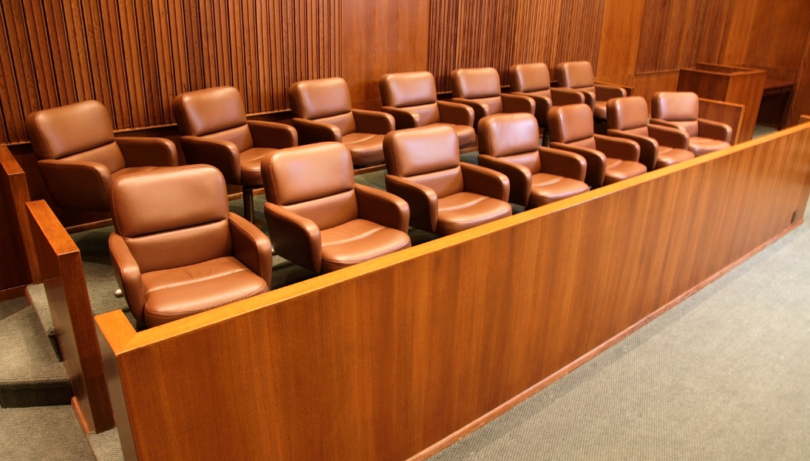Jury duty is a cornerstone of the justice system, allowing ordinary citizens to participate in the legal process and ensure fairness. However, despite its importance, why do people hate jury duty? The prospect of serving on a jury often evokes feelings of dread and resentment among potential jurors. This aversion stems from a combination of factors, ranging from logistical inconveniences to psychological anxieties.
This article delves into the common reasons behind the widespread dislike for jury duty, exploring the complexities of balancing civic responsibility with personal discomfort. We’ll examine the time commitment, scheduling conflicts, perceived boredom, legal decision-making anxiety, and courtroom environment discomfort that contribute to this negative perception. By understanding these factors, we can gain a deeper appreciation for the challenges faced by potential jurors and work towards creating a more positive and supportive jury experience.
Civic Duty vs. Personal Discomfort
While jury duty is undeniably a civic responsibility, it often clashes with personal priorities and commitments. Many individuals view it as an unwelcome interruption to their daily lives, forcing them to prioritize legal proceedings over work, family obligations, or personal pursuits. This sense of obligation versus personal preference can create internal conflict and contribute to feelings of resentment towards the jury summons.
Furthermore, the perceived lack of control over one’s schedule during jury duty can exacerbate this discomfort. Potential jurors often feel powerless to negotiate their service dates or request accommodations, leading to a sense of frustration and helplessness. This power imbalance between the legal system and the individual can further fuel negative perceptions of jury duty.
Time Commitment and Scheduling Conflicts
One of the most significant reasons why do people hate jury duty is the substantial time commitment required. Jury selection alone can take several hours, and trials can last for days, weeks, or even months. This lengthy involvement necessitates rearranging work schedules, canceling appointments, and potentially sacrificing personal time, leading to logistical headaches and financial strain.
Moreover, the unpredictable nature of jury duty adds another layer of complexity. Potential jurors may receive a summons with limited notice, leaving them scrambling to adjust their existing commitments. This lack of flexibility can create significant stress and disrupt personal routines, contributing to feelings of resentment towards the legal system’s demands.
Boredom and Monotony Concerns
The perceived boredom and monotony of jury duty often rank high among reasons for aversion. Long hours spent listening to testimony, reviewing evidence, and deliberating with fellow jurors can feel tedious and uninspiring. The lack of intellectual stimulation and limited opportunities for personal engagement can lead to feelings of restlessness and disinterest.
Furthermore, the passive nature of jury duty can exacerbate boredom. Potential jurors are often relegated to a listening role, with limited opportunity to actively participate or contribute their perspectives. This sense of detachment from the proceedings can foster apathy and contribute to negative perceptions of the experience.
Anxiety About Legal Decisions
Serving on a jury carries the weighty responsibility of making legal decisions that can have profound consequences for individuals’ lives. This pressure to weigh evidence, understand complex legal arguments, and reach a just verdict can induce significant anxiety among potential jurors.
The fear of making an incorrect decision or facing criticism for their judgment can be overwhelming. Furthermore, the high stakes involved in legal proceedings can amplify existing anxieties and create a sense of unease and uncertainty. This psychological burden contributes to the negative perception of jury duty for many individuals.
Courtroom Environment Discomfort
The courtroom environment itself can contribute to feelings of discomfort and anxiety among potential jurors. The formal atmosphere, strict rules of decorum, and presence of legal professionals can feel intimidating and unfamiliar.
Moreover, the emotional nature of court proceedings, often involving sensitive topics and personal testimonies, can be emotionally draining for jurors. Witnessing graphic evidence or hearing harrowing accounts can trigger feelings of distress and unease, further contributing to negative perceptions of the courtroom experience.
Conclusion
Jury duty, while a vital component of the justice system, is often met with apprehension and resentment due to a confluence of factors. The time commitment, scheduling conflicts, perceived boredom, anxiety surrounding legal decisions, and discomfort with the courtroom environment all contribute to this widespread aversion.
Understanding these challenges is crucial for fostering a more positive and supportive jury experience. By addressing logistical concerns, providing adequate support and resources, and promoting greater public understanding of the jury’s role, we can encourage civic engagement and ensure that justice is served fairly and effectively.



